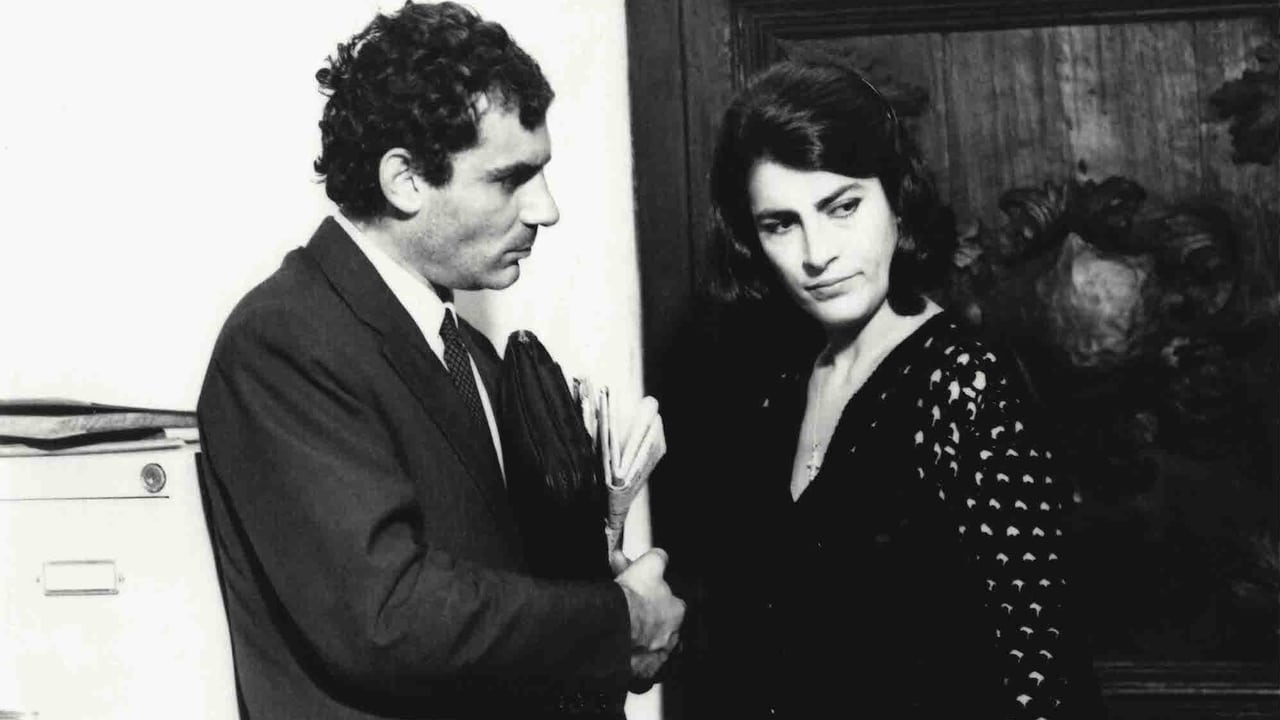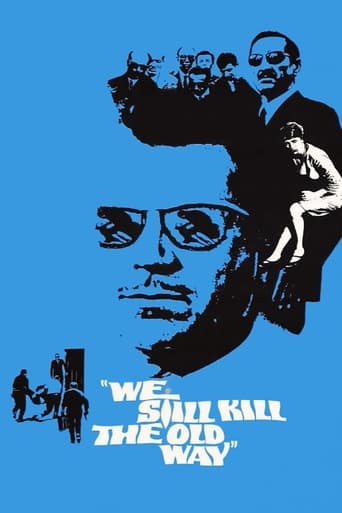

It's an amazing and heartbreaking story.
... View MoreA story that's too fascinating to pass by...
... View MoreA film with more than the usual spoiler issues. Talking about it in any detail feels akin to handing you a gift-wrapped present and saying, "I hope you like it -- It's a thriller about a diabolical secret experiment."
... View MoreThere is definitely an excellent idea hidden in the background of the film. Unfortunately, it's difficult to find it.
... View MoreGoodish blend of Mafia movie (still pretty much uncharted territory at the time) and political thriller, with a hesitant romance thrown in for good measure; the result is generally absorbing, thanks largely to uniformly excellent performances, gleaming location photography (Sicily, of course) and a wonderful score by the ever-reliable Luis Enrique Bacalov. Heading the cast is Gian Maria Volonte': the film launched the political/social conscience phase of his career after a stint doing Spaghetti Westerns. His character is that of an intellectual loner who finds himself in over his head when he starts probing into the assassination of two friends including philanderer Luigi Pistilli which leads to his falling for the other's wife (Irene Papas). Though the identity of the villain (as ever, an eminent member of the community and far closer to the hero than he envisaged) comes as no real surprise, the investigation involving, among other things, the hushed participation of cleric and senator alike and the disquieting revelations that emerge from it, lends the whole a deeply cynical tone (culminating in the downbeat climax depicting Volonte''s own extreme fate) while cementing the Mafia's reputation as strictly a 'family business'. The Italian DVD includes an interesting half-hour featurette detailing the making and reception of the award-winning film (including the fact that the author of the source novel, Leonardo Sciascia, was dissatisfied with how the script turned out); the interviewees are co-scriptwriter Ugo Pirro, the wife of the late Elio Petri, and composer Bacalov (who is regretful that, given his felicitous working relationship with the director here, the opportunity never arose for another collaboration).
... View MoreAt the beginning of the movie a pharmacist receives an anonymous letter that threatens him of death. And the murder actually happens. Seems very simple but nothing is what it seems and the journey to the truth will be long and difficult. The book is excellent and the movie is at par with it and very faithful to the romance. Great direction. Incredible cast with Gabriele Ferzetti in his best interpretation together with the one in "C'era una volta il West" and Gianmaria Volonté simply beyond reach as always. Many other great actors. Yes I am an enthusiast 'cause there's not a word or a shot out of place in this movie and the plot is ingenious. Who is going to see this film for the first time will be taken away by the developments (the pace seems to be calm but looking in between the kinks you may realize that many things are going rapidly on). Trying to figure out what is the kernel of the happenings and the "reasons" for the murder is a very interesting exercise but it's highly unlikely for the spectator not to experience a big surprise at the end. In my opinion Elio Petri at his best (I mean at the same level of his other masterwork: La classe operaia va in Paradiso).
... View MoreAlthough drawn from a powerful novel by Leonardo Sciascia, this results in an oversimplified, well-meaning social mystery set in 1965 Sicily, where two men are killed during a hunting party. A leftist professor (Gian Maria Volonté, a much better actor in the later Petri offering "Indagine su un cittadino al di sopra di ogni sospetto") decides to investigate the murders, only to find himself entangled in a spiderweb of corrupt politicians, "mafiosi" killers and sinister Church connections: the anonymous letters received by the victims - and, in due time, by the professor himself - were made with clippings from the Vatican newspaper "L'Osservatore Romano". There is also a fascinating dark lady character, a victim's widow, played by the splendid Irene Papas, whose black-stockinged legs wink through the whole film to the shy, undecided professor. When he resolves to take the woman, in a love scene near the end of the movie, it is unfortunately too late... The film can still be seen with some fun, but it's far from a serious rendition of the novel and it's not perhaps among the best Mafia movies made in Italy at the time. It's curious to note how so-called "spaghetti westerns", for instance, were often much more effective in describing corrupt politicians and Mafia-governed southern towns than their "mainstream" counterpart, like this typically engagé movie. I found also irritating the use of Cinemascope combined with low angles, continuous camera movements and extremely close shots, so that the narrative pace is fragmented and, more often than not, disturbed.
... View MorePaolo Laurana is a kind of leftist intellectual who chances to be intrigued by a mysterious double murder in the Sicily of mid Sixties. In his personal detection for murder's instigators, he will run into a plot in which both politicians and mafia racketeers are involved. So curiosity will become a very dangerous affair. Taken from a novel by Leonardo Sciascia (1921-1989), A ciascuno il suo (1967) is a film where high rank acting is at its top. Cast (Gianmaria Volonté, Irene Papas, Gabriele Ferzetti, Salvo Randone, Luigi Pistilli. Mario Scaccia, Leopoldo Trieste) is perfect and well-combined, direction (Elio Petri, 1929-1982) is powerful and impressive. If compared to the novel, Elio Petri's film (written with Ugo Pirro) may seem short of that illuministic pessimism that breathes through Sciascia's books, but Laurana's rationalistic search for truth retains that `bitter taste of intelligence' which is one of the major feature of Sciascia's characters. A key film to understand historical condition of Italy in the Sixties.
... View More